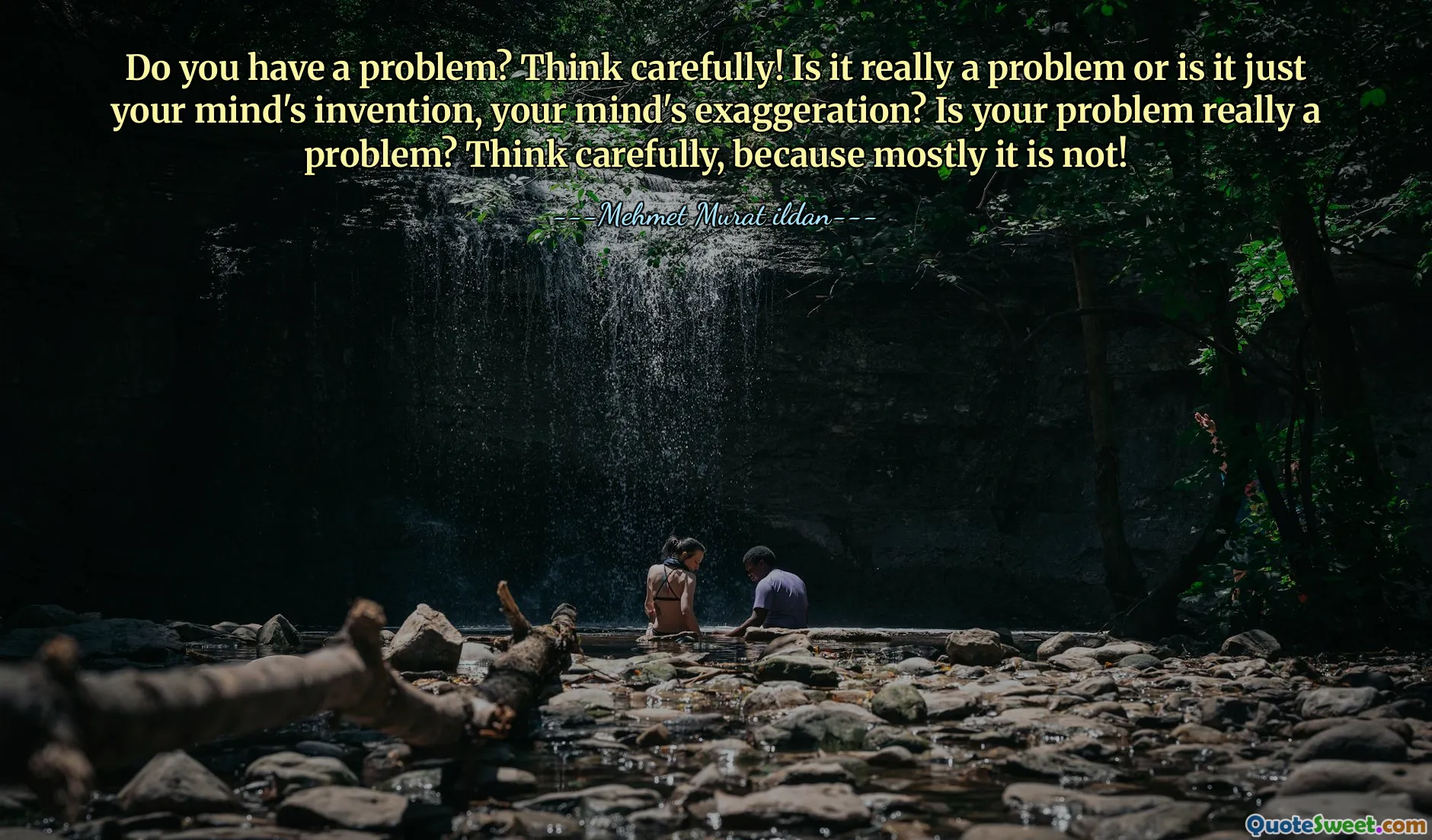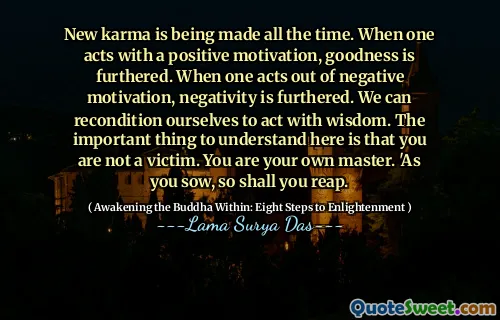
Do you have a problem? Think carefully! Is it really a problem or is it just your mind's invention, your mind's exaggeration? Is your problem really a problem? Think carefully, because mostly it is not!
This quote invites a profound introspection into the nature of our problems and how we perceive them. Oftentimes, the human mind has a tendency to amplify challenges, turning minor inconveniences or uncertainties into overwhelming obstacles. This mental exaggeration can paralyze us, impeding progress and fostering needless stress. By encouraging us to question the reality of our problems, the quote promotes a mindset of clarity and critical thinking.
It underscores the significant impact of perception on our emotional well-being. When faced with difficulties, the immediate reaction is often emotional and instinctive—our minds generate scenarios that may not be fully grounded in reality. These heightened perceptions can distort the actual magnitude of issues, making them appear far worse than they truly are. This distortion can be detrimental, leading to anxiety, fear, and indecision. Recognizing that a problem might be a mental construct rather than an objective reality allows us to adopt a calmer, more rational approach to problem-solving.
Moreover, the quote suggests that by carefully evaluating the legitimacy of our problems, we can retain control over our mental state. It empowers us to differentiate between genuine issues requiring attention and the shadows cast by our own imagination. This discernment is crucial because energy and focus invested in imagined problems dilute our capacity to handle true challenges effectively.
In daily life, applying this approach could mean pausing before reacting, analyzing the root cause of our distress, and assessing whether it stems from an actual event or from our mind’s tendency to exaggerate. This practice not only can alleviate unnecessary worry but also improve emotional resilience, enabling us to respond with wisdom and composure.
Ultimately, this quote serves as a reminder that while problems are a natural part of life, how we perceive them largely shapes our experience. By fostering mindful awareness and critical self-reflection, we can master the narrative our mind creates, transforming difficulties into manageable situations rather than insurmountable hurdles.
---Mehmet Murat ildan---









